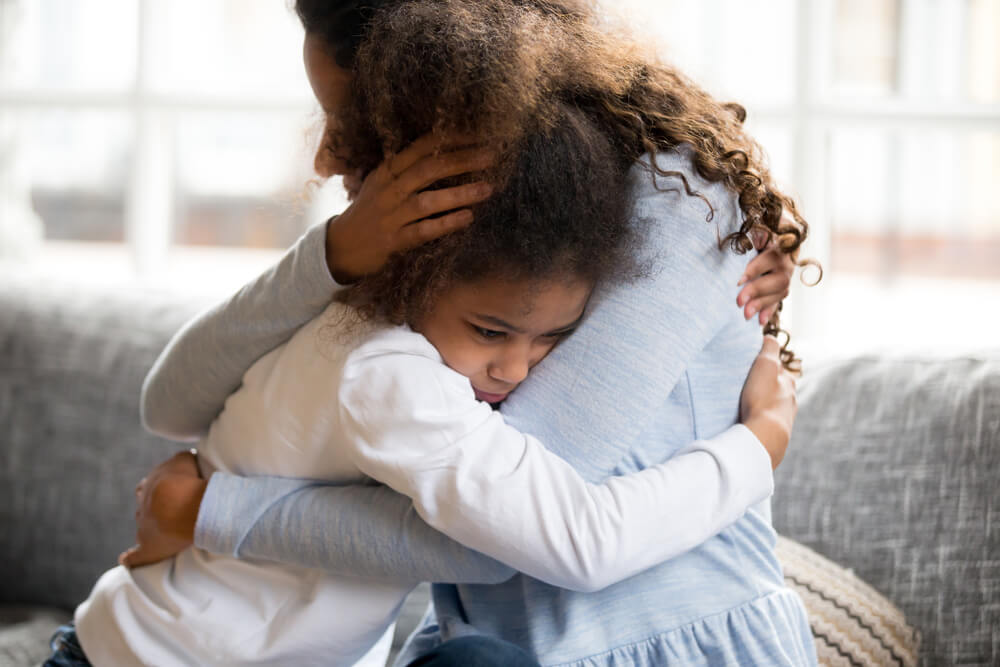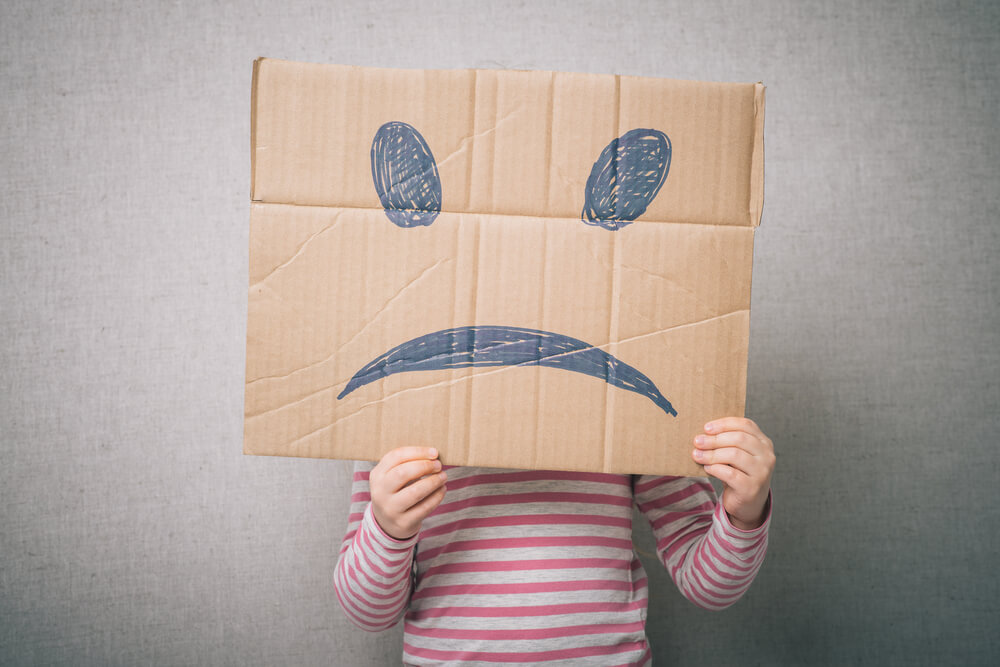Recognizing the early signs of depression in children is crucial, as it allows for timely help and support. Childhood depression can cast a shadow over what should be a bright world filled with happiness. Identifying the early signs of childhood depression, enables you to assist your child in navigating challenges and understanding the necessary steps to take when they’re feeling down. Regrettably, this occurrence is becoming increasingly common. Equipping yourself with the right tools will enable you to better assist your child in navigating these challenges, helping them understand the necessary steps and when to take them.
Childhood depression symptoms can vary greatly, and these signs may come and go unpredictably. At Carithers Pediatric Group, we prioritize the mental well-being of both parents and children. Specifically, when it comes to children dealing with depression, we have a dedicated team of experts who focus solely on providing support for children diagnosed with this condition.
Our team understands that childhood depression can be complex, and we are here to help you and your child through this journey. We pay close attention to their mental health, and our specialists have the knowledge and experience to provide the best care and support needed.
Unmasking Childhood Depression

Depression, whether it affects children or adults, is a complex mental health condition that goes beyond occasional sadness. It encompasses persistent feelings of sadness that can significantly affect daily life and overall well-being. To truly grasp depression, it’s essential to understand its different forms, ranging from major depressive disorder to persistent depressive disorder.
Several factors, including biology, psychology, and the environment, play a role in its development. Although childhood depression shares similarities with depression in adults, it often shows itself in unique ways, highlighting the importance of specialized awareness. Recognizing the broader scope of depression enhances our collective ability to address this intricate issue across all age groups.
Moreover, identifying the signs is the first crucial step in assisting a child who is experiencing sadness in navigating the complex landscape of their emotions.
Signs of Childhood Depression
Recognizing the signs of childhood depression is paramount for early intervention. Emotional indicators include persistent sadness, irritability, and an overwhelming sense of hopelessness. Behavioral changes may manifest in altered sleep patterns, diminished interest in once-enjoyed activities, and changes in appetite. Academic decline, social withdrawal, and a notable lack of energy are additional red flags.
Here are some additional details that might be helpful:
- Emotional Indicators: One of the telltale signs of childhood depression is a persistent feeling of sadness that goes beyond typical mood swings. A sad kid may exhibit heightened irritability, frequent tearfulness, and an overall sense of hopelessness. It is essential to be attuned to shifts in their emotional landscape to detect these subtle yet significant changes.
- Behavioral Changes: Depression in children often manifests through changes in behavior. Keep a watchful eye for alterations in sleep patterns, appetite, and energy levels. A once-vibrant and energetic child may become lethargic or disinterested in activities they once enjoyed. These behavioral shifts are poignant markers of the internal struggle a sad kid may be facing.
- Academic Decline: Depression can significantly impact a child’s ability to concentrate and perform academically. If you notice a sudden decline in grades or a reluctance to engage in school-related activities, it could be indicative of an underlying struggle with depression.
- Social Withdrawal: Childhood depression often prompts a withdrawal from social interactions. A sad kid may isolate themselves from friends and family, finding solace in solitude. This withdrawal can lead to a further deterioration of their mental health, emphasizing the importance of recognizing and addressing the signs promptly.
It is important to approach these signs with sensitivity, as they can often be subtle and easily overlooked. By understanding the nuanced manifestations of childhood depression, caregivers, educators, and healthcare professionals can create a supportive network to help sad kids navigate their emotional struggles effectively.
The Importance of Early Intervention
The importance of early intervention in childhood depression cannot be overstated. Early recognition and prompt action significantly contribute to a child’s overall well-being. Depression, if left unaddressed, can lead to more severe mental health challenges and potentially impact a child’s long-term development. Early intervention allows for the timely implementation of coping mechanisms and therapeutic strategies, minimizing the potential escalation of symptoms.
Additionally, it provides a foundation for building emotional resilience, equipping children with essential tools to navigate life’s challenges. By prioritizing early intervention, we not only address the immediate concerns of childhood depression but also pave the way for a healthier, more resilient future for the children in our care.
What Can a Parent Do?

There are various ways to approach your child if you notice that they might be suffering from childhood depression.
- Open Communication: Create an atmosphere where your child feels safe expressing their emotions without fear of judgment. Actively listen to their concerns, providing empathy and understanding. Encourage them to articulate their feelings through words, drawings, or any medium they find comfortable. Initiate regular check-ins to discuss their emotional well-being, fostering an ongoing dialogue.
As a caregiver, be transparent about your own feelings, demonstrating vulnerability and reinforcing the idea that it’s okay to express emotions. By prioritizing open communication, you build trust, strengthen your relationship, and empower your child to share their inner world, crucial for effective support and intervention in the face of childhood depression.
- Professional Guidance: Seeking professional help is imperative when signs of childhood depression persist. Mental health professionals, such as therapists and counselors specializing in child psychology, possess the expertise to navigate the complexities of a young mind. These professionals employ evidence-based interventions tailored to the unique needs of children, offering a safe space for them to express their emotions.
Through therapeutic sessions, children can learn coping strategies, problem-solving skills, and emotional regulation techniques. Collaborate with your child’s school to involve educators in the support network, ensuring a cohesive approach. Professional guidance not only facilitates early intervention but also equips parents and caregivers with valuable tools to navigate the challenges of childhood depression and contribute to their child’s emotional resilience.
Outside of the above-mentioned approaches, establishing routines that prioritize self-care, including regular exercise, adequate sleep, and nutritious meals can help your child in more ways than you can imagine. Remember, your role as a caregiver is pivotal in helping your child navigate the complexities of childhood depression, fostering resilience, and facilitating their journey toward emotional well-being.
Unraveling the complexities of childhood depression requires a multifaceted approach encompassing awareness, open communication, and professional guidance. Understanding the signs, fostering open dialogue, and seeking expert support are integral components of navigating this challenging terrain. By acknowledging the broader context of depression, we empower ourselves to be compassionate advocates for the emotional well-being of our children. Through a collaborative effort involving caregivers, educators, and mental health professionals, we can create a supportive network that offers help to every child grappling with depression.
And If You Need Help…
Carithers Pediatrics is open for support and guidance whenever you need it, so feel free to call. The experts who specialize in childhood depression are there to help both parents and children, so please reach out to us and let us help support you and your child.


